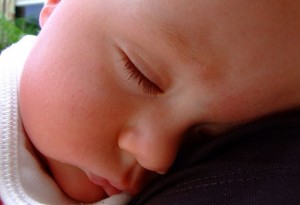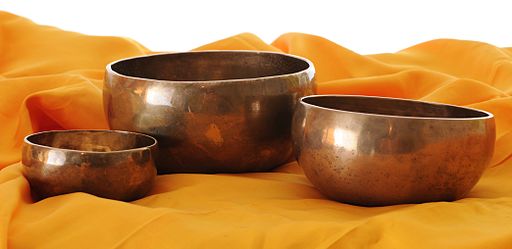
People suffering from insomnia often get buckets of condescendent advice like “avoid stress”, “don’t eat too much at night”, “make sport in the evenings”, “reduce your fears”, “don’t go to bed unless you are going to sleep” etc.. The worst of all advice is something like “I know a good pill for this”.
Music is a harmless sleeping pill
Here at Ambient Mixer we say: “listen to something you like”. And we mean by it: use music to make you sleep better.
Pills are artificial, pills can be dangerous too. Music however is a completely harmless issue. Even if it doesn’t do the job immediately, you’ll have something nice during your sleepless nights that may not get you to sleep, but may help you to relax and calm down.
The big question for us as music makers or producers is: How does music benefit sleep?
We are not talking about falling asleep during a concert because of pure boredom. We are talking here about relaxing music and it’s influence on our brain. And we are talking about how we can benefit from relaxing music.
How does music influence our brain activity at sleep?
We don’t know too much about the effect of music on our brain and here at ambient mixer we are not scientists. But we know that scientist have the same questions as we, with other motivations of course. So searching for some answers, we found that indeed there may be some relation between a sleeping brain and very low frequencies. At least that’s what some scientist experiments have found out, according to an article in the science magazine Neuron from May 2013.
There have been other experiments in that direction that confirm this approach to sleep.Two German scientist experimented the same results on another study and got to similar conclusions.
Resuming all we read, it seems that external very low frequency sounds seem to be able to enhance sleep and memory. The so-called slow brain waves, the ones that people produce while in the deep sleep phase, are essential for learning. If these waves are stimulated during the sleep phase with sounds in the same rhythm, it not only helps memory but also enhances the quality of sleep.
How did they come to these conclusions? They played sounds to the test persons in which the rhythms were synchronized with the main typical brain waves in our brain. The experiment showed that people who heard these sounds remembered things better than when the sounds were not played during their sleep.
Actually you can’t call this mechanism a “sound” from a musicians point of view. We are only able to hear frequencies starting at 16-20 Hz, and that is during childhood. As adults it is quite seldom to hear that low. But the sounds or rhythms that helped the brains activity during sleep were lower than 1 Hz, this is lower than 60 on a metronome.
Is there any proof for the influence of music on sleep?
The two German scientist experimented the same results on another study. They tested eleven people during several nights in the sleep lab. During their sleep they were confronted with several sound stimulation in different rhythms. Whenever the sounds synchronised with the slow waves, the persons could remember better the word pairs they had learned the previous evening.
As musicians, wee keep in mind that very slow sound events can enhance our sleep. But, while all this applies to the deep sleep phase, the problem of “getting to sleep” remains.
Here there has been some more research about this topic as well. Some studies claim a positive effect of electronic music to get to sleep. A bunch of German psychologists of Cologne investigated this matters and developed a CD based on their theories about brain waves and sleep induction through slightly deformed stereo tones.
170 people suffering from insomnia volunteered to test the CD for seven weeks. The results showed an average improvement of half an hour more sleeping time. They even spent more time in bed than they did before the test, as they were not distressed by sleeplessness.
Binaural sounds
The relaxing method does not rely just on any relaxing music but on sound manipulation inside a relaxing piece of music. Searching for sleep music or music for the brain, you may have stumbled upon the label “binaural” sounds The theory behind this name relates to the concept of binaural stereo. What some psychologists suppose is that through binaural recordings they could stimulate the brain waves regulating the sleeping process.
Binaural sounds are sounds with a slight difference in their arrival time for the right and left ear. People experimenting with binaural music use a little time delay in the stereo mix to provoke this effect in the listener. There is a lot of buzz going round with this binaural beats theory. You’ll find interesting information to start with at the wikipedia article for binaural beats.
Every brain has its own music
What experiments have shown is that every “sleep music” should be as individual as the brain waves of the person it is targeted at. So if your brain waves are of a certain kind, your individual sleep sounds should be also influenced by this.
The concept of “brain music” seems very attractive, but fact is that at this stage of things it’s just an experimental theory. There are some products sold as brain enhancers, but a really effective sleep-CD for chronic insomnia would need to be recorded for the specific person it’s targeted at.
Frequency, amplitudes and rhythms of a specific person need to be translated into music to develop any useful sleep music. Then it would be necessary to experiment with the reactions of the person to optimize the sound to really work.
This is exactly what a laboratory from the homeland security did. In an experiment on how to enhance concentration and relaxation for firemen, a lab recorded the brain waves of some volunteers. These waves were then converted to two different music pieces and played slowly on a piano. One composition was 2-6 minutes long and was responsible for relaxation and getting into sleep. It resembled a soft sonata from Chopin. The second piece was for wake and concentrated states and resembled more a piece of Mozart.
With the help of this personalized music the volunteers had a specific listening schedule. The test persons really felt an improvement in their moods after using this prepared music listening plan. The department of Homeland Security in the US is testing to expand the system for police and other civil servants under stress.
How does this translate to a music producer? It means that there is no general recipe for a musical sleeping pill.
Other approaches
There are lots of people researching and experimenting with sounds and “brain music”. People like the guys at brainwavelabs.com , who are researching on sounds for every type of effect, among them some insomnia sounds.
There is the ASMR community, another movement researching about the effects of sound on the human brain. Whether it works or not is in dispute.
Why are all relying on brain wave frequencies? Mostly because they have been discovered and can be measured. And if it can be measured you can define experimental actions on it. Mainly producers of brain music are relying on the known wave forms of the brain. You can read some resume on brain waves from wikipedia:
|
Frequency range |
Name |
Usually associated with: |
|
> 40 Hz |
Gamma waves | Higher mental activity, including perception, problem solving, fear, and consciousness |
|
13–39 Hz |
Beta waves | Active, busy or anxious thinking and active concentration, arousal, cognition, and or paranoia |
|
7–13 Hz |
Alpha waves | Relaxation (while awake), pre-sleep and pre-wake drowsiness, REM sleep, Dreams |
|
8–12 Hz |
Mu waves | Mu rhythm, Sensorimotor rhythm |
|
4–7 Hz |
Theta waves | Deep meditation/relaxation, NREM sleep |
|
< 4 Hz |
Delta waves | Deep dreamless sleep, loss of body awareness |
According to this, the dominant frequency determines one’s current state. If in someone’s brain at a certain point alpha waves are dominating, they are in the alpha state (this happens when one is relaxed but awake). However, other frequencies will also be present, but with smaller amplitudes.
Notice that a lot of these waves are way below the human perception. We start “hearing” a frequency at 16 Hz, if we have our audition center intact.
Do we really need a lab to develop sleep music for us?
For now, no one knows why some music has a healing effect on people. But we know instinctively what kind of music has an smoothing effect on each of us. And this is very individual. We have lots of rhythms in our body: heartbeat and blood flow for example adapt to external rhythms while hearing music. If you happen to have a friend who has a heart pacemaker, you’ll notice how it synchronizes with music after a while of relaxed but concentrated listening.
Many people have their own natural sleeping sounds. Someone who has grown up near a railway station may find it relaxing and familiar to hear some train noise at night. Some other would close an eye, but get’s to sleep a minute after an ocean shore sound smooths his senses to sleep. Babies sleep better if they hear familiar sounds or their parents voice.
There are nights when I wake up in the morning with a sensation of relax and good sleep that is different from other mornings. Then I know it’s been raining during the night. Because for me, rain is a natural sleeping pill.
Though any healing effects can be gone by functional misuse of music.We often suffer from an overflow of music. Healing music nowadays could also consist in just clicking on the “OFF” –button of any background music. Only when we come to rest, music can really relax and smooth down. Music you know, you like, you feel familiar with is the best.


Leave a Reply